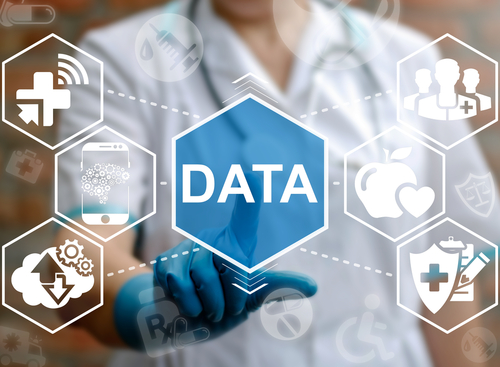In this contributed article, Sheldon H. Jacobson, PhD,, Founder Professor of Computer Science at the University of Illinois at Urbana-Champaign, is an advocate for advanced-analytics-based modeling to monitor the spread of COVID-19. Every state reopening represents an opportunity to collect data and identify best practices that can benefit other states.
How Data Collection During the Country’s Reopening Can Accelerate Return to Normalcy
Big Data/COVID-19 News – 6/1/2020
The big data ecosystem has come out strong to help combat the global coronavirus pandemic by announcing new products and services to help fight COVID-19. In this article, I’ve listed a number of the recent announcements along these lines. Kudos to all the vendors listed below, you may just make an important difference in getting the world past these trying times!
Intel Works with University of Pennsylvania in Using Privacy-Preserving AI to Identify Brain Tumors
Intel Labs and the Perelman School of Medicine at the University of Pennsylvania (Penn Medicine) are co-developing technology to enable a federation of 29 international healthcare and research institutions led by Penn Medicine to train artificial intelligence (AI) models that identify brain tumors using a privacy-preserving technique called federated learning.
Big Data/COVID-19 News – 4/26/2020
The big data ecosystem has come out strong to help combat the global coronavirus pandemic by announcing new products and services to help fight COVID-19. In this article, I’ve listed a number of the recent announcements along these lines. Kudos to all the vendors listed below, you may just make an important difference in getting the world past these trying times!
Explainable AI: The key to Responsibly Adopting AI in Medicine
In this special guest feature, Niv Mizrahi, CTO & Co-Founder of Emedgene, discusses a field of technology that constantly is rising in importance – explainable (or interpretable) AI, and specifically how it has become a key responsibility for adopting AI in medicine. Emedgene is a genomics company using AI to automatically interpret genetic data so that health organizations can scale personalized care to wider populations.
Columbia University DSI Alumni Use Machine Learning to Discover Coronavirus Treatments
Two graduates of the Data Science Institute (DSI) at Columbia University are using computational design to quickly discover treatments for the coronavirus. Andrew Satz and Brett Averso are chief executive officer and chief technology officer, respectively, of EVQLV, a startup creating algorithms capable of computationally generating, screening, and optimizing hundreds of millions of therapeutic antibodies. They apply their technology to discover treatments most likely to help those infected by the virus responsible for COVID-19.
Supercomputers vs Superviruses: Why Tech is Our Best Hope in the Coronavirus Pandemic
In this contributed article, Golnar Pooya, a partner with IBM Digital Strategy practice, and an advisor at 7 Gate Ventures, suggests that in light of the global pandemic, AI gives us an incredible chance to protect life and we must arm it with the information it needs to do so. This outbreak only confirms the position of technology as mankind’s most important tool in protecting global health.
Four Ways AI Can Positively Impact Pharmaceutical Development
In this special guest feature, Updesh Dosanjh, Practice Leader, Technology Solutions for IQVIA, discusses how AI is making its way into pharmacovigilance (the detection, collection, assessment, monitoring, and prevention of adverse effects with pharmaceutical products) platforms and improving efficiencies for pharma companies, in light of the continued growth and proliferation of available data.
Vaccines Are Being Created By AI: Here’s How
In this contributed article, tech blogger Caleb Danziger discusses how medical researchers have begun using AI in a bid to reduce long drug development times and prevent costly failures. Now, these efforts are beginning to produce real results. A team of medical researchers from Australia’s Flinders University have designed an AI that has, for the first time, created a drug entirely by itself.
The Data of Behavior & Neuroplasticity
In this contributed article, Magnolia Potter explains how behavioral science is starting to play an impressive role in data science and vice versa. Many scientists and other healthcare professionals believe big data collection can help identify behavioral trends in society and more easily pinpoint causes. This can lead to greater success in behavioral training and in creating a more effective learning technique to change negative behaviors and alter neuroplasticity.










